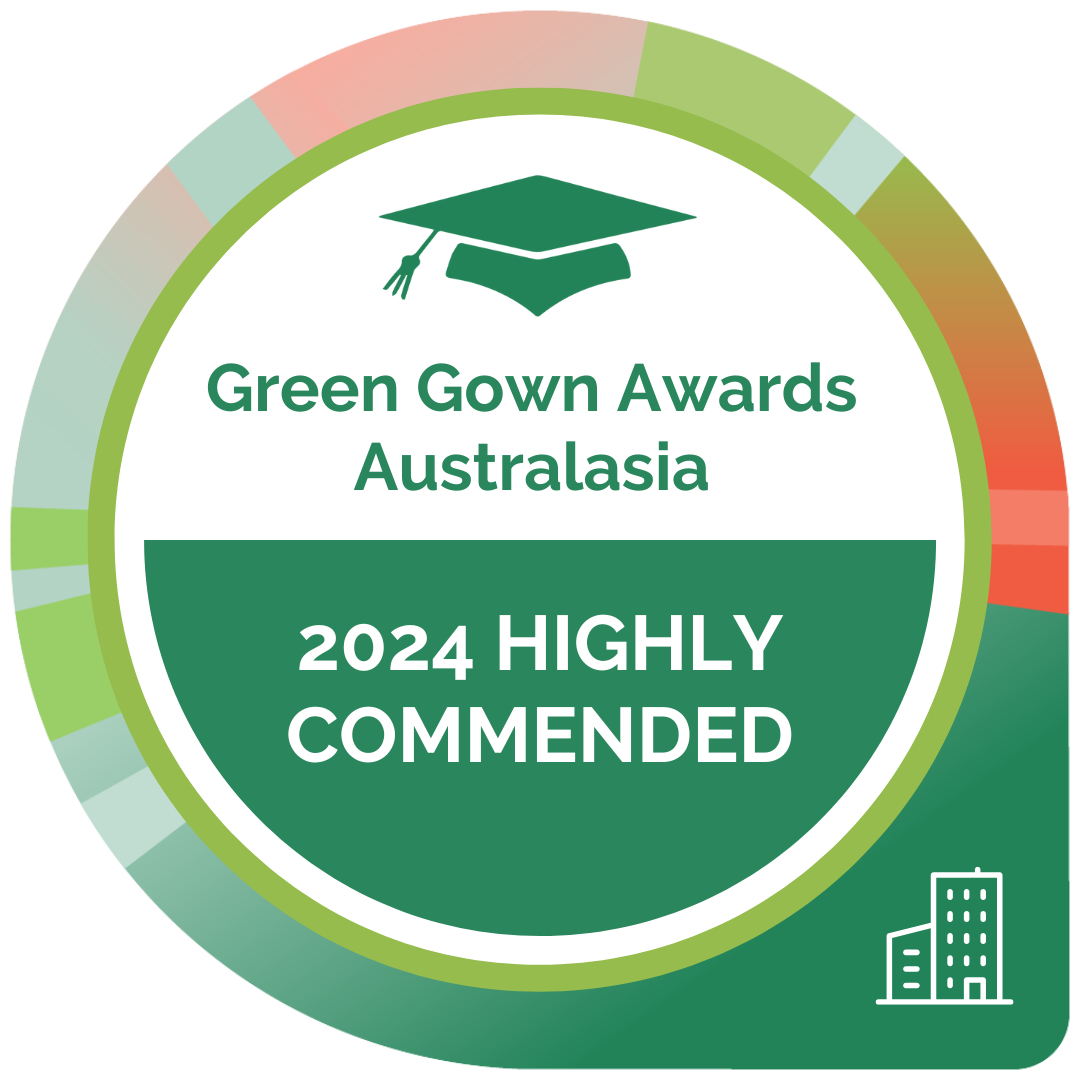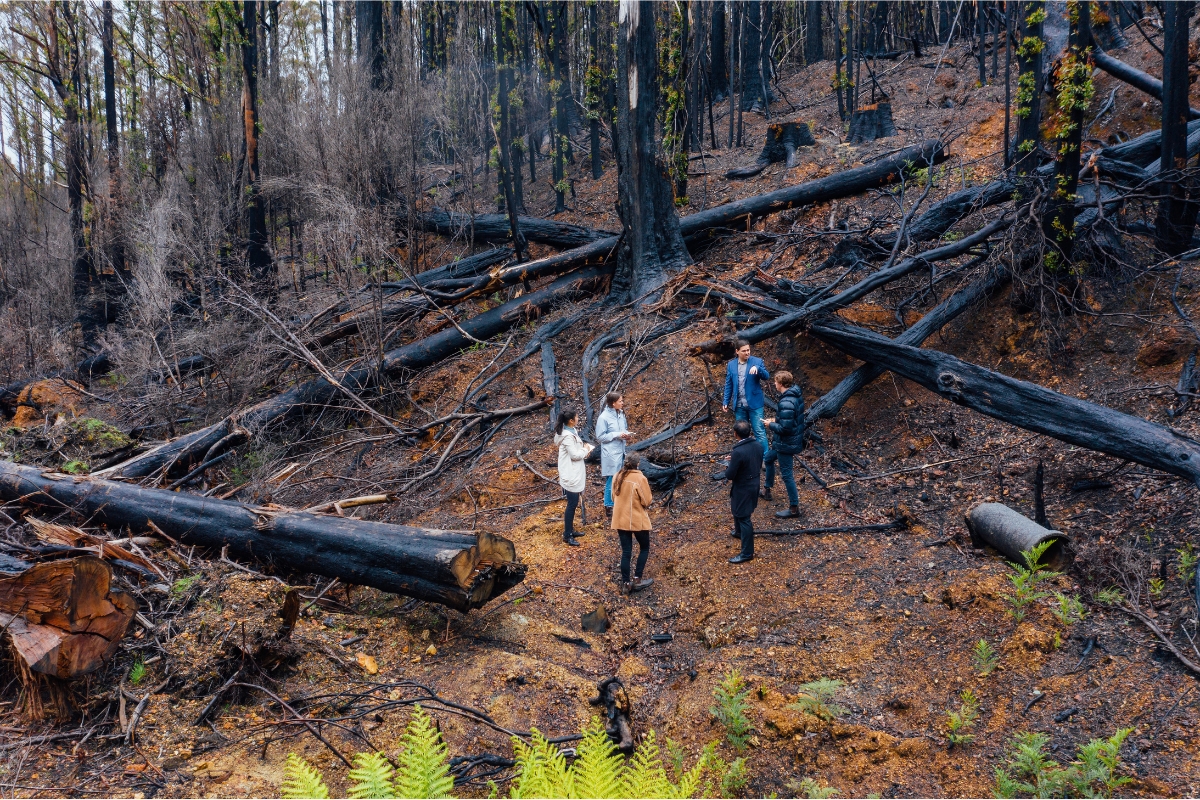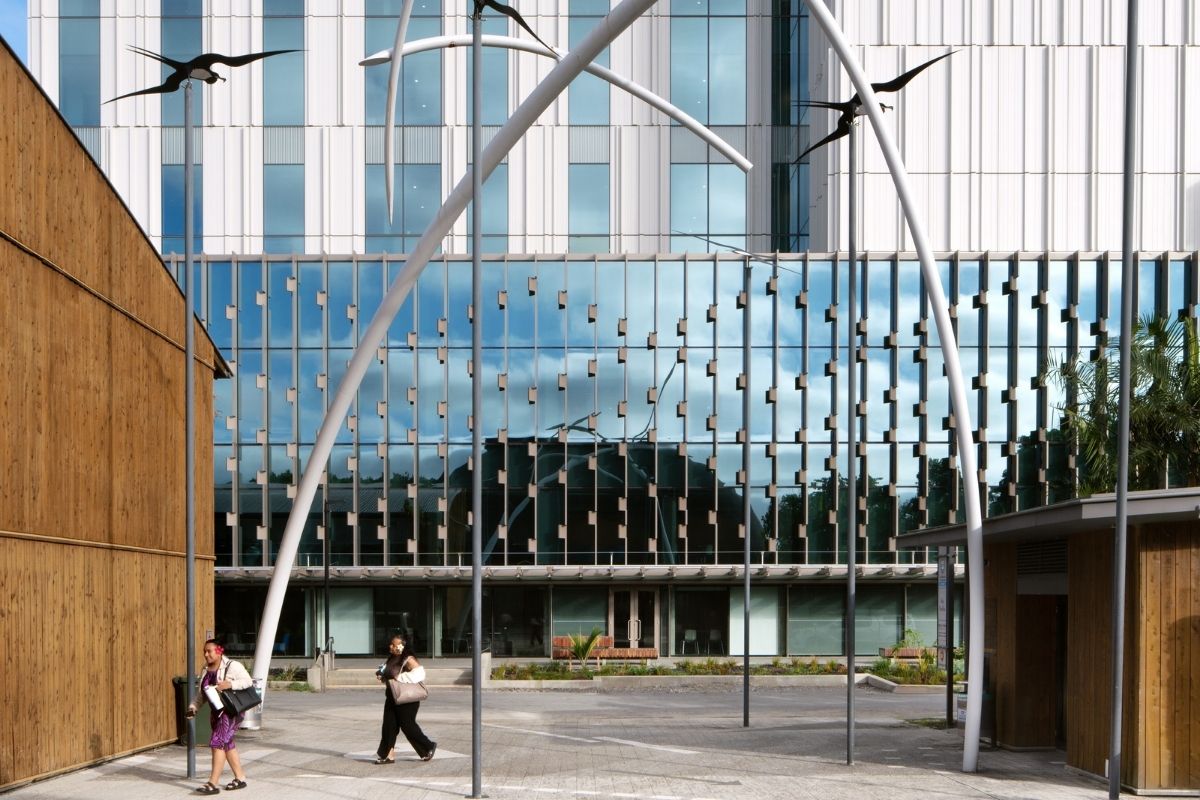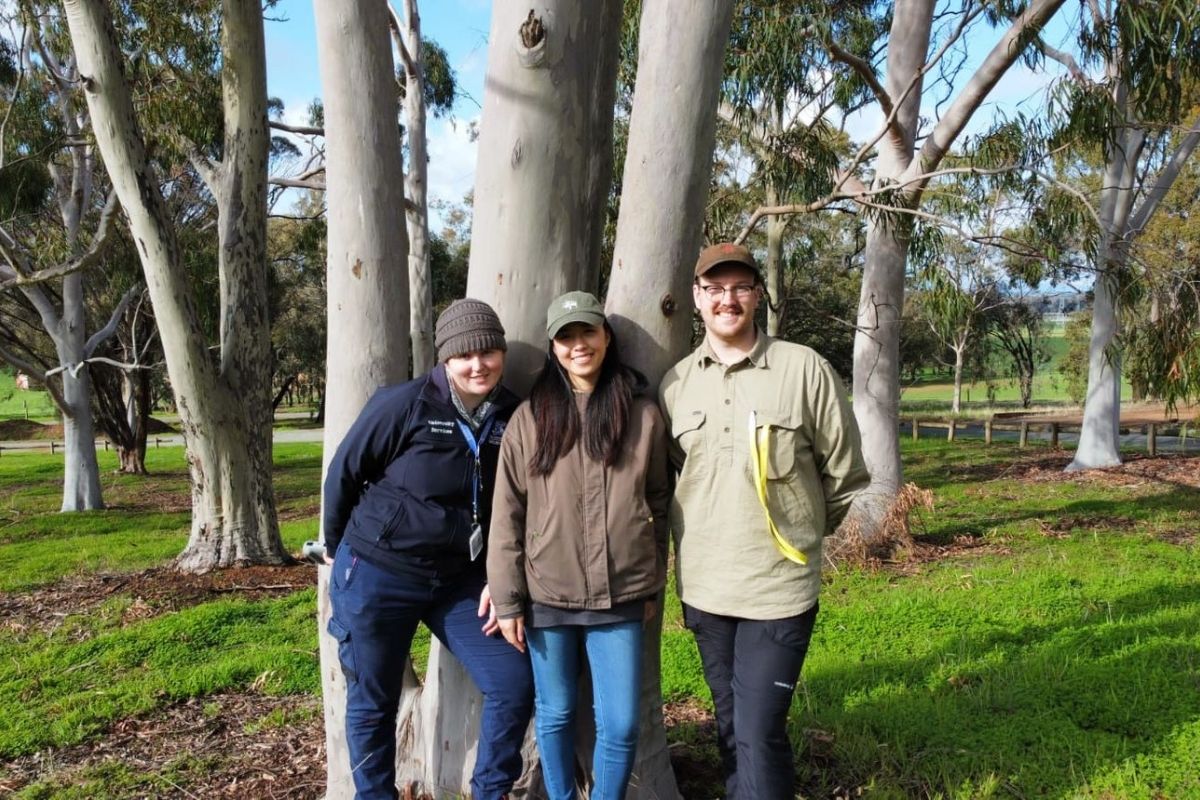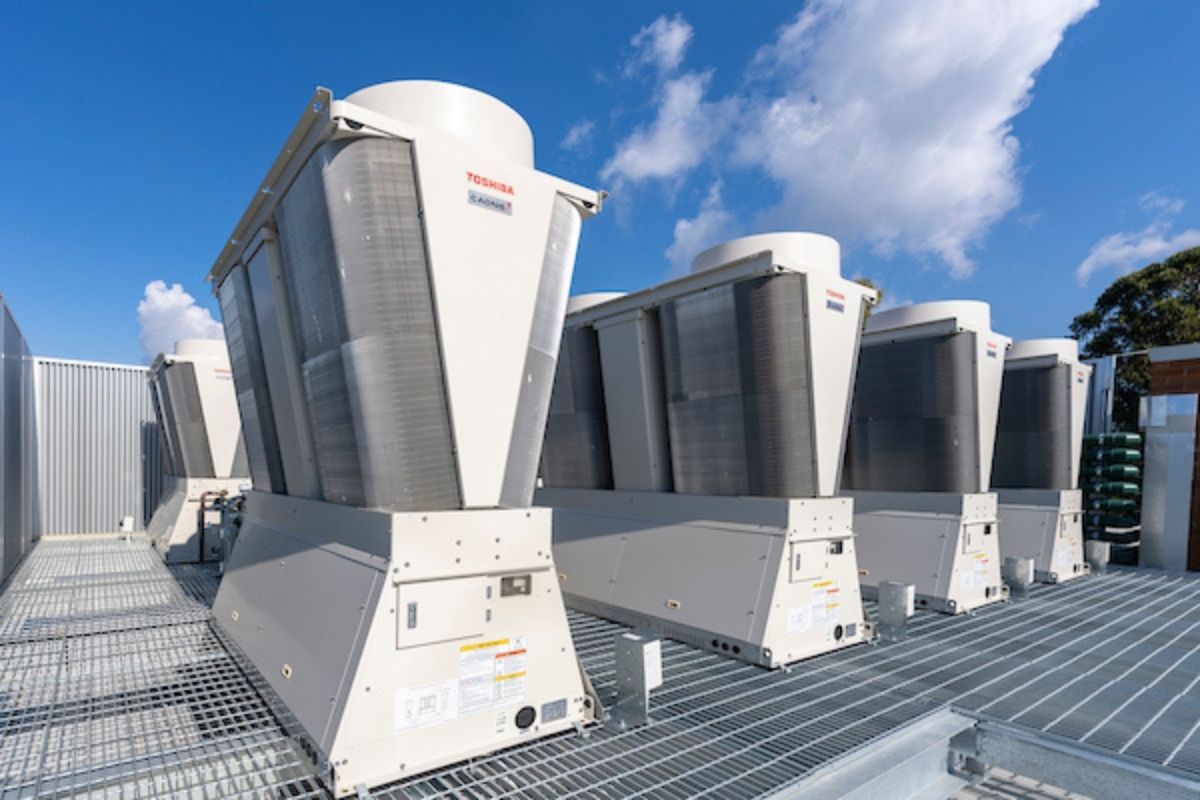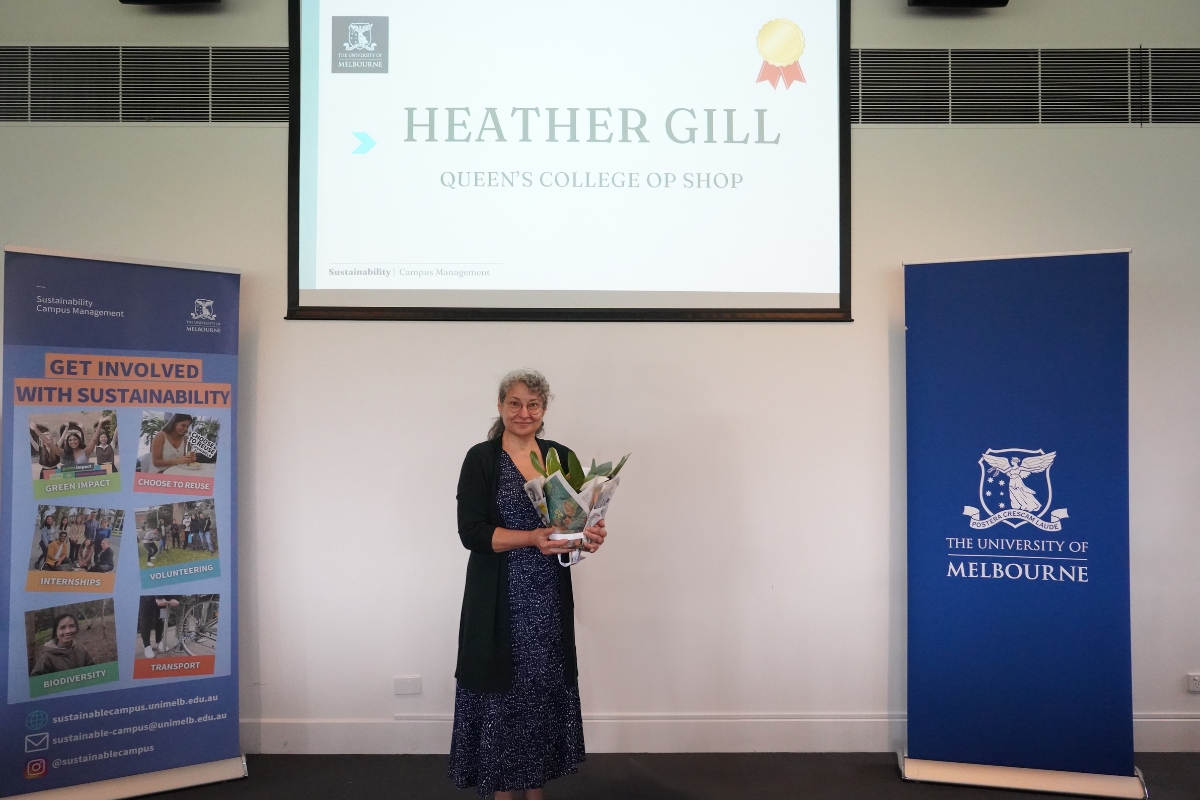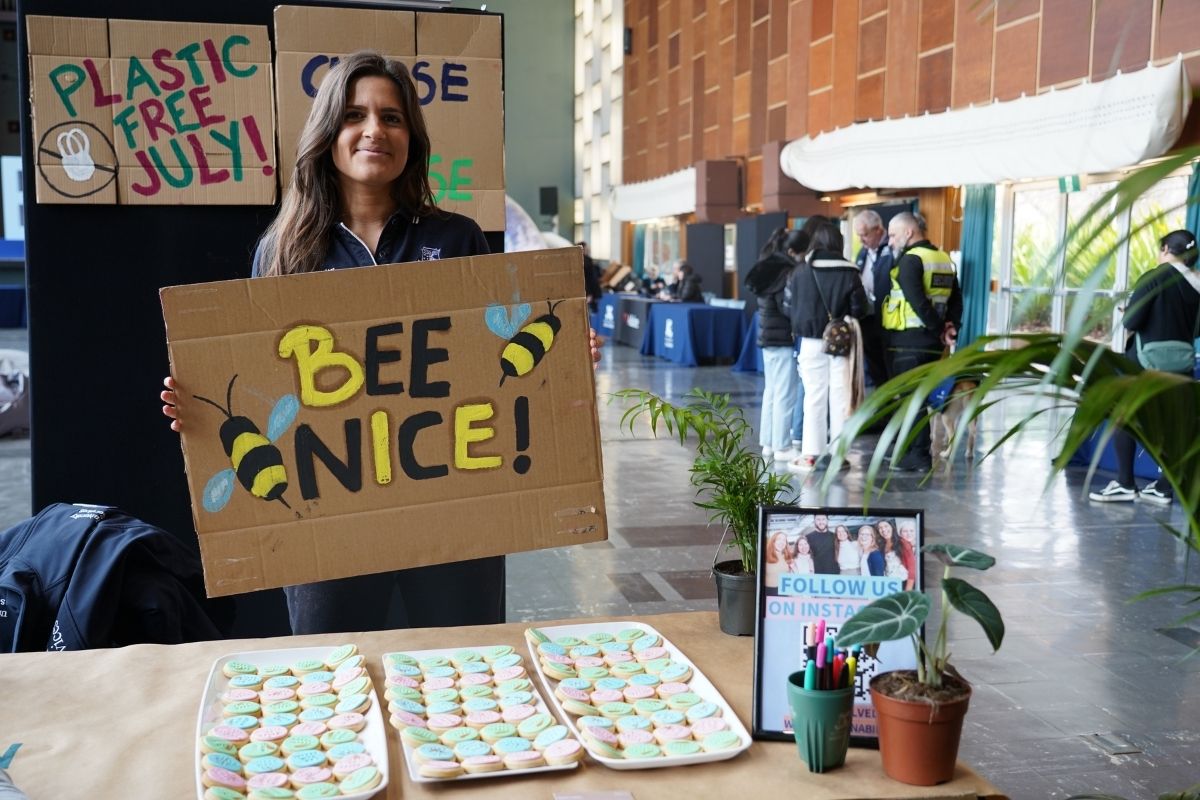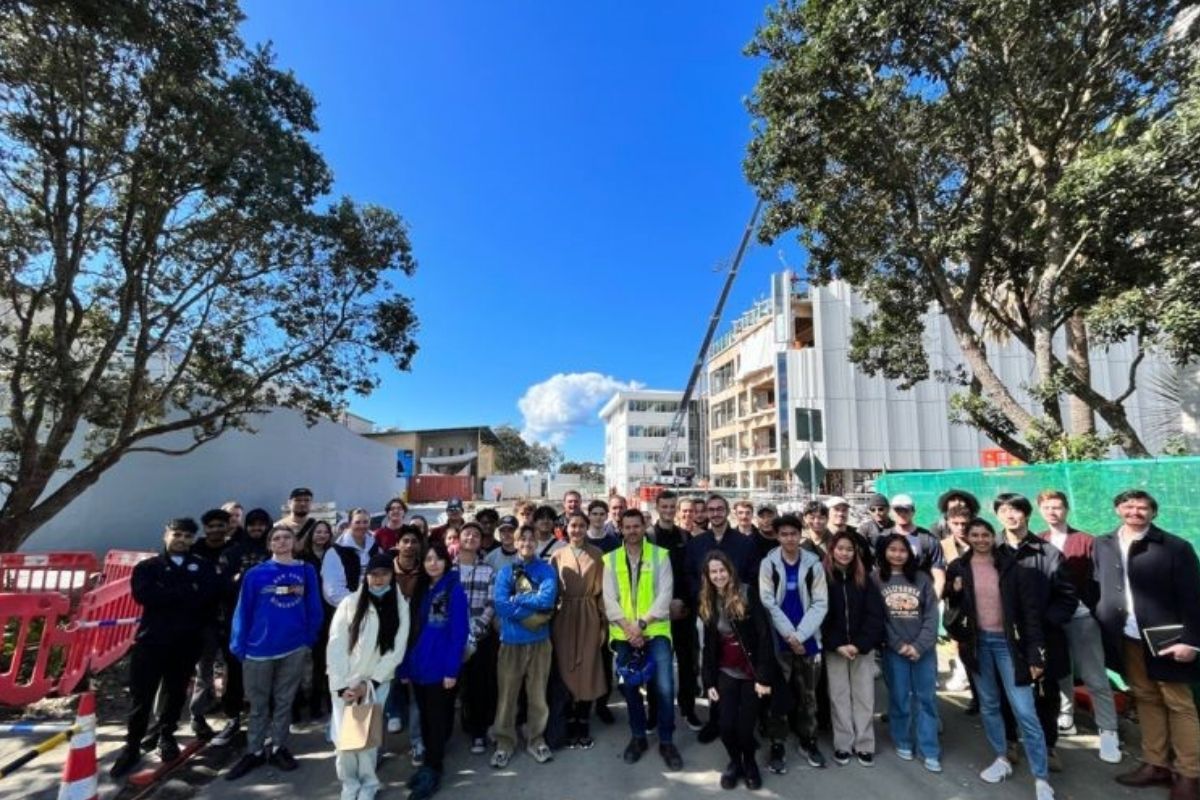Climate Action/Highly Commended category
The Australian National University (ANU) has launched the “Carbon Smart Travel” initiative, aiming to significantly reduce travel-related carbon emissions, which accounted for 40% of the university’s reported carbon footprint in 2023. This ambitious program aligns with the University’s ambition of reaching Below Zero emissions by 2040 and is part of the broader ANU Corporate Plan 2024-2027. The initiative involves developing tools, resources, and institutional support to empower staff to make informed decisions about travel, balancing the necessity of travel with the need to reduce negative environmental impacts.
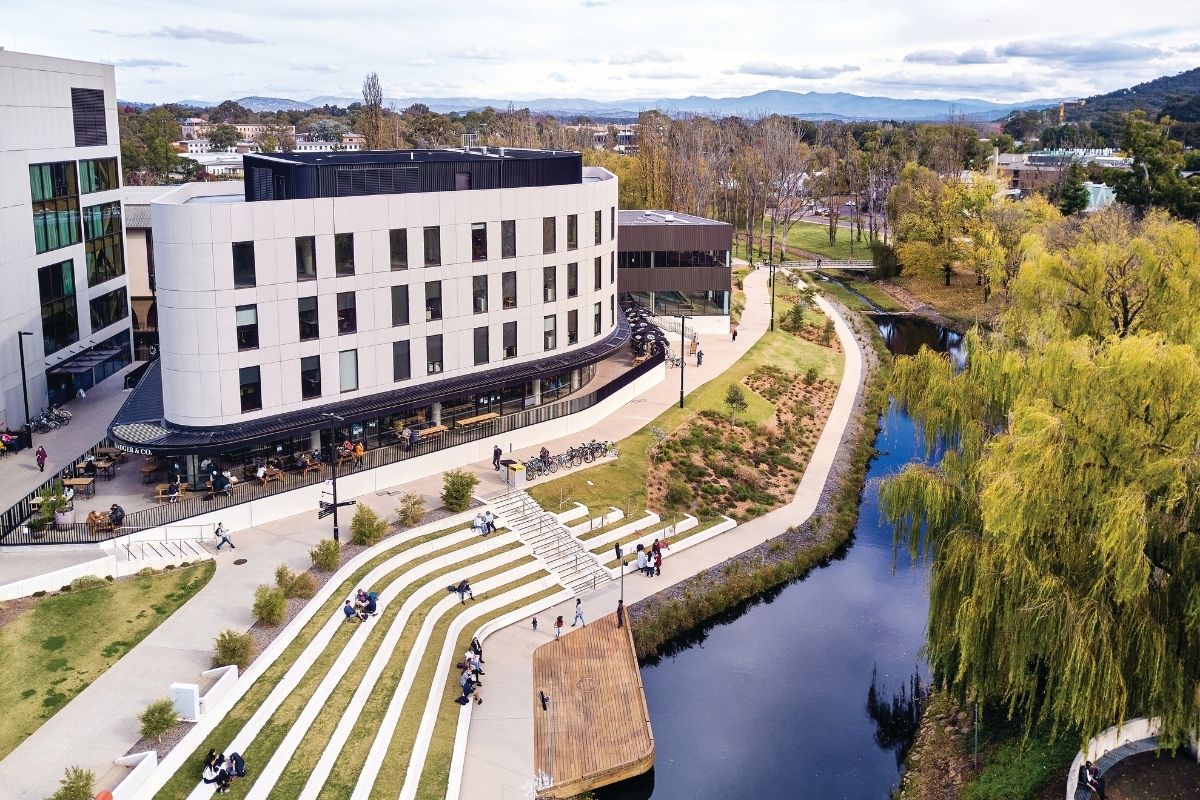
Environmental and Social Benefits
- Emission Reductions: The initiative has achieved a reduction of 9000 tonnes CO2e in travel emissions in 2023 compared to 2019 levels, thanks to changes in travel and work behaviour post-pandemic and the uptake of low-carbon travel options.
- Resource Conservation: By promoting virtual meetings and rethinking travel, the initiative conserves resources and reduces the overall carbon footprint associated with university operations.
- Social Empowerment: A survey conducted between January and March 2024 showed that 97% of respondents had taken at least one action to reduce travel emissions, and 77% supported the emissions reduction target, indicating strong community engagement and support. Respondents were supportive of measures that empower them to achieve their goals with a lower carbon footprint.
Leadership and Engagement
- Student and Staff Involvement: The initiative has involved multiple stakeholders, including the ANU Travel Lab, which brings together interdisciplinary researchers to develop strategies for reducing travel emissions. Over 400 staff participated in the initial survey, contributing to the program’s development and success.
- Community and Industry Partnerships: ANU has collaborated with various organisations, including ACTS, the CSIRO, the Australasian Universities Air Travel Consortium, and the International Alliance of Research Universities, to share knowledge and best practices.
- Policy Influence: The initiative goes beyond standard reporting requirements by publicly reporting on all travel emissions, including international travel and other modes of transport, setting a new benchmark for transparency and accountability.
Significance to the Sector
- Global Recognition: The University’s approach to reducing travel emissions is distinctive for its participatory nature, involving staff and students in co-designing measures and fostering a sense of ownership. The initiative has been recognised for its innovative strategies and significant impact on reducing emissions.
- Innovative Practices: The Carbon Smart Travel initiative includes tools such as the Travel Emissions Tracker app and the Carbon Smart Travel guide, which provide practical guidance and transparency, helping staff and students make informed travel decisions.
- Educational Leadership: The program integrates sustainability into academic curricula and offers hands-on learning opportunities, contributing to the development of job-ready graduates equipped with knowledge and skills in sustainability and climate action.
Wider Societal Impact
- Economic and Social Co-Benefits: The initiative has highlighted the efficiency and cost benefits of reducing travel, such as better work-life balance and expanded networks through virtual meetings. It also demonstrates the potential for significant financial savings associated with reduced travel emissions.
- Global Influence: The tools and resources developed by ANU can be adapted by other organisations, making the initiative relevant to various sectors, including business, government, and non-profit organisations. The participatory approach serves as a model for engaging staff and students in sustainability efforts.
The Australian National University’s “Carbon Smart Travel” initiative shows a comprehensive and impactful approach to reducing travel emissions. Through innovative strategies, strong community engagement, and leadership in sustainability, ANU has significantly reduced its carbon footprint and set a new standard for climate action in the education sector. This project not only contributes to the University’s sustainability goals but also offers a replicable model for other institutions and sectors globally, demonstrating the feasibility and benefits of reducing travel-related emissions.
Top 3 learnings
Category finalists
Climate Action/Winners
Climate Action/Winners
Climate Action
Climate Action
Highly Commended/Nature Positive
Highly Commended/Nature Positive
Climate Action
Climate Action
Diversity, Equity and Inclusion/Highly Commended
Diversity, Equity and Inclusion/Highly Commended
Highly Commended/Staff Champion
Highly Commended/Staff Champion
Highly Commended/Sustainability Leadership
Highly Commended/Sustainability Leadership
Past winners
Benefitting Society/Winners
Benefitting Society/Winners
Diversity, Equity & Inclusion in Sustainability/Winners
Diversity, Equity & Inclusion in Sustainability/Winners
Climate Action/Winners
Climate Action/Winners
Sustainability Institution of the Year/Winners
Sustainability Institution of the Year/Winners
Creating Impact/Winners
Creating Impact/Winners
Creating Impact/Winners
Creating Impact/Winners
Top 3 learnings
Climate Action/Highly Commended category
The Australian National University (ANU) has launched the “Carbon Smart Travel” initiative, aiming to significantly reduce travel-related carbon emissions, which accounted for 40% of the university’s reported carbon footprint in 2023. This ambitious program aligns with the University’s ambition of reaching Below Zero emissions by 2040 and is part of the broader ANU Corporate Plan 2024-2027. The initiative involves developing tools, resources, and institutional support to empower staff to make informed decisions about travel, balancing the necessity of travel with the need to reduce negative environmental impacts.

Environmental and Social Benefits
- Emission Reductions: The initiative has achieved a reduction of 9000 tonnes CO2e in travel emissions in 2023 compared to 2019 levels, thanks to changes in travel and work behaviour post-pandemic and the uptake of low-carbon travel options.
- Resource Conservation: By promoting virtual meetings and rethinking travel, the initiative conserves resources and reduces the overall carbon footprint associated with university operations.
- Social Empowerment: A survey conducted between January and March 2024 showed that 97% of respondents had taken at least one action to reduce travel emissions, and 77% supported the emissions reduction target, indicating strong community engagement and support. Respondents were supportive of measures that empower them to achieve their goals with a lower carbon footprint.
Leadership and Engagement
- Student and Staff Involvement: The initiative has involved multiple stakeholders, including the ANU Travel Lab, which brings together interdisciplinary researchers to develop strategies for reducing travel emissions. Over 400 staff participated in the initial survey, contributing to the program’s development and success.
- Community and Industry Partnerships: ANU has collaborated with various organisations, including ACTS, the CSIRO, the Australasian Universities Air Travel Consortium, and the International Alliance of Research Universities, to share knowledge and best practices.
- Policy Influence: The initiative goes beyond standard reporting requirements by publicly reporting on all travel emissions, including international travel and other modes of transport, setting a new benchmark for transparency and accountability.
Significance to the Sector
- Global Recognition: The University’s approach to reducing travel emissions is distinctive for its participatory nature, involving staff and students in co-designing measures and fostering a sense of ownership. The initiative has been recognised for its innovative strategies and significant impact on reducing emissions.
- Innovative Practices: The Carbon Smart Travel initiative includes tools such as the Travel Emissions Tracker app and the Carbon Smart Travel guide, which provide practical guidance and transparency, helping staff and students make informed travel decisions.
- Educational Leadership: The program integrates sustainability into academic curricula and offers hands-on learning opportunities, contributing to the development of job-ready graduates equipped with knowledge and skills in sustainability and climate action.
Wider Societal Impact
- Economic and Social Co-Benefits: The initiative has highlighted the efficiency and cost benefits of reducing travel, such as better work-life balance and expanded networks through virtual meetings. It also demonstrates the potential for significant financial savings associated with reduced travel emissions.
- Global Influence: The tools and resources developed by ANU can be adapted by other organisations, making the initiative relevant to various sectors, including business, government, and non-profit organisations. The participatory approach serves as a model for engaging staff and students in sustainability efforts.
The Australian National University’s “Carbon Smart Travel” initiative shows a comprehensive and impactful approach to reducing travel emissions. Through innovative strategies, strong community engagement, and leadership in sustainability, ANU has significantly reduced its carbon footprint and set a new standard for climate action in the education sector. This project not only contributes to the University’s sustainability goals but also offers a replicable model for other institutions and sectors globally, demonstrating the feasibility and benefits of reducing travel-related emissions.
Related finalists
Climate Action/Winners
Climate Action/Winners
Climate Action
Climate Action
Highly Commended/Nature Positive
Highly Commended/Nature Positive
Climate Action
Climate Action
Diversity, Equity and Inclusion/Highly Commended
Diversity, Equity and Inclusion/Highly Commended
Highly Commended/Staff Champion
Highly Commended/Staff Champion
Highly Commended/Sustainability Leadership
Highly Commended/Sustainability Leadership
Other finalists
Climate Action

Driving Towards Tomorrow’s Campus with Vehicle-to-Grid EV Technology
As part of Flinders University’s drive to innovate and become a leader in climate action, the University launched its Vehicle-to-Grid (V2G) initiative. This involved installing and maintaining 20x V2G and smart chargers for its growing electric vehicle fleet. Leveraging 100% renewable energy generated by ENGIE’s Willogoleche Wind Farm and Flinders University’s solar power systems, this enables the storage of renewable energy in EV batteries to be discharged on campus during peak demand periods. Hence, allows for these EV fleets to operate as a Virtual Power Plant (VPP) to deliver peak demand management and optimization of behind-the-meter generation.
Overall, this initiative demonstrates the reliability and scalability of bi-directional and uni-directional smart-charging systems for EVs in reducing GHG emissions while facilitating teaching, research, and innovation opportunities. Moreover, it exemplifies a sustainable and innovative solution to scale energy storage technology and increase renewables.
Sustainability Champion – Staff/Winners

Brandan Espe
Environmental Officer / Acting Grounds Supervisor
Brandan has brought over 50 federally listed Endangered species of plant into the James Cook University living collection, many of which have never been cultivated and are found in no other collection in the world.
Of these, over half have been sustainably wild collected, inclusive of field and clone data, so they can be used for ongoing conservation, research and teaching, the remaining being sourced from private and partner organisations through favours of service or trades.
He personally funded the project from 2019-2022, until funding was awarded for the program due to its success, with the program now being engrained into the Universities landscapes for ongoing management should he leave JCU, creating a threatened species legacy collection.
The program has now expanded beyond this, with an additional 48 species now funded for further addition, some of which are only known from less than 5 sightings in history.
Student Engagement

Sustainability Leaders creating real impact!
La Trobe created a unique Sustainability Leaders volunteering program to increase engagement with students on campus and empower them to act against waste and promote sustainability. It included the following initiatives:
- Promoting the reusable crockery implementation,
- Increasing knowledge action of other students on campus to diversion comingled recycling and organic waste from landfill.
- Focus on waste audits and data,
- Improved signage through new waste posters for students living on campus.
- Collaboration with Cirka (our cleaning and waste partner) to create a waste wall and;
- Learning all things sustainability (net zero, biodiversity, waste, reusables, engagement)
These initiatives yielded significant results and with a reduction in waste contamination by almost 40% at the residential buildings and engagement with over 80 groups of people for the Reusable Revolution.
Creating Impact

Where knowledge meets habits: Empowering students for a sustainable tomorrow
Our online Sustainability Challenges offer participants an engaging, self-paced learning experience centered around a specific United Nations Sustainable Development Goal (UNSDG). Requiring minimal resourcing and at zero-cost to participants, we’ve created replicable, compact, scalable, and impactful learning opportunities that result in real impact.
The Challenges follow a structured process that moves participants from knowledge gain to simple action to celebration, to establish small but mighty habits relating to waste and carbon emissions. This approach recognises that knowledge alone is often insufficient to drive behaviour change, and that ease of action and celebration are crucial components in creating sustainable habits.
Sustainability Champion – Staff/Winners

Catherine (CeeJay) Donovan
Veterinary nurse – Anaesthesia
From establishing the Massey Vet School Green Team to leading impactful initiatives, my commitment to environmental sustainability has been making waves. With the help of my team, I have accomplished numerous small, yet meaningful actions, including integrating a sustainability lecture for final year vet students and implementing battery recycling alongside rechargeable battery use. Our larger projects encompass the introduction of green waste and soft plastics recycling bins, an energy audit resulting in power-saving measures, and playing a part in a successful rubbish audit. I spearheaded the ‘6 in 6’ campaign, empowering individuals with six simple steps for workplace sustainability. Through the SustainaVet social media pages I help to educate and inspire peers nationwide. As the Massey School of Veterinary Science sustainability champion, I had the privilege of speaking at the annual veterinary conference on sustainability in clinical practice. Currently I’m conducting pioneering research on responsible cat waste disposal. Together, we’re forging a greener future, one initiative at a time.
Sustainability Champion – Student

Louis Walmsley
SDG Coordinator Monash Association of Sustainability, Office Bearer Monash Student Association’s Environmental and Social Justice Department, Masters of Environment and Sustainability Student
Louis is an exceptional student sustainability leader at Monash University. His passion and dedication to sustainability have made a significant impact on the community. Louis’s values revolve around sustainability, which is evident upon meeting him. He actively participates in various sustainability groups, demonstrating his commitment to creating a more environmentally conscious society.
One of Louis’s notable involvements is with Precious Plastic Monash, where he organizes remarkable events and fosters collaboration among like-minded individuals, student groups, and staff. His contributions to the Monash Association of Sustainability have allowed him to conduct valuable research on plastic usage and climate action, resulting in positive changes within the university.
Through his work with the Monash Student Association, Louis has engaged hundreds of students in fun and interactive sustainability initiatives. He took the initiative to organize a sustainability food fair, which was one of the largest sustainability-related events held at Monash post-COVID. This accomplishment is a true testament to Louis’s hard work and creativity.
Louis is an outstanding student leader whose efforts in sustainability have had a lasting impact on Monash University and its community. His inspiring nature resonates with everyone who knows him.


